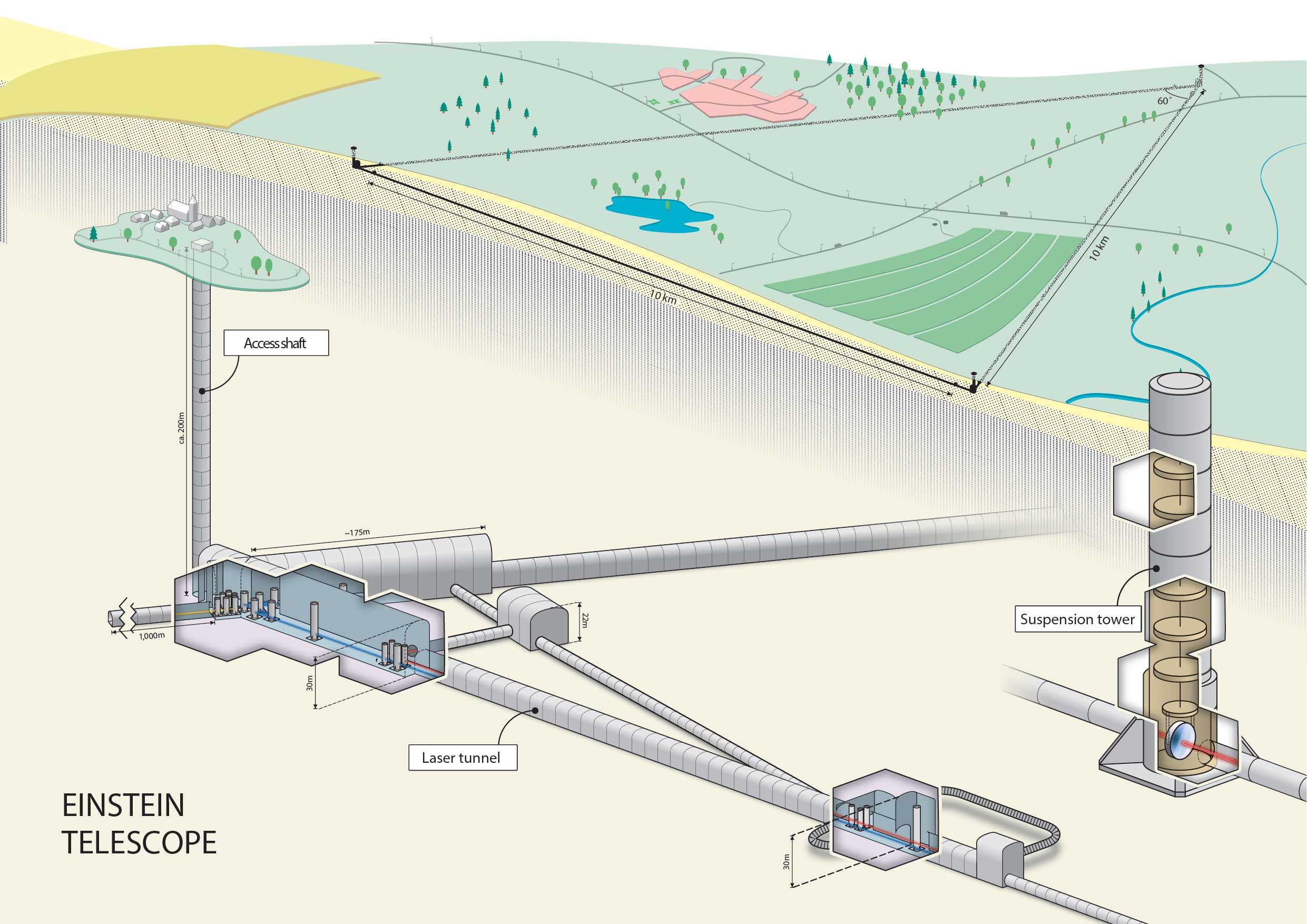The Einstein Telescope: Call for Proposals and Royal Institution Lectures - United Kingdom
The Einstein Telescope: Call for Proposals and Royal Institution Lectures
The Dutch Embassy has launched a call for proposals related to the developments of the Einstein Telescope. This follows a fascinating lecture at the Royal Institution by associate professor of physics Gideon Koekoek as part of the Dutch Science Series 2024, exploring gravitational waves and demystifying the complexities of physics so that everyone can understand the revolutionary experiments being done by physicists every day. The deadline for submitting proposals is Friday 29 November 2024.
Call for Proposals - A New Window on the Universe
The Dutch Embassy to the UK is inviting Dutch and British companies, research institutes and professional associations to submit joint NL-UK proposals for writing a white paper on gravitational waves, and other key enabling technologies that will contribute to the building and development of the Einstein Telescope. Proposals on topics such as vibration-free cooling, better sensors, new algorithms to isolate gravitational wave signals from noise and ultra-high vacuum systems are also of interest.
€5,000 in funding is available per white paper. This funding will contribute to exploring a partnership between British and Dutch organisations on a certain topic or to expand on a topic both parties are already working on. We encourage applicants to use this opportunity to highlight interesting bilateral innovations and R&D initiatives.
For more information, the eligibility criteria and the required proposal submission template, please contact the Dutch Embassy to the UK: Marjolein Bouwers, Laura van Voorst Vader and/or Iris Leussink via email.
Dutch Science Series at the Royal Institution: Demystifying the complexities of physics
Our universe vibrates daily when black holes or neutron stars orbit or collide somewhere in the universe. Albert Einstein predicted back in 1916 that distances stretch and contract almost immeasurably when such a gravitational wave passes. In 2015, this phenomenon was measured for the first time, marking the beginning of a set of revolutionary experiments.
Curved spacetime, black holes, and the evolutionary history of the Universe speak immensely to the imagination of the general public and science enthusiasts. However, physics is often seen as a discipline only accessible to the intellectual elite. Physicist and gravitational wave expert Gideon Koekoek (Maastricht University ) is on a mission to demystify the complexities of physics.
In his engaging lecture at the Royal Institution, Gideon Koekoek let us in on the secret that nature repeats the same rules over and over and over again; once we understand one case, we can understand more abstract areas too.
His lecture is available to view online via the Royal Institution YouTube Channel here.
Gideon invites us to look to the future and appreciate the exciting discoveries coming our way in the next few years...thanks to the plans to build the Einstein Telescope.
What is the Einstein Telescope?
The underground Einstein Telescope will be Europe's most advanced observatory for gravitational waves. It will allow researchers to hear black holes collide and learn about the early universe.
The Netherlands, Belgium and Germany are jointly studying whether to host this world-class observatory. With the Einstein Telescope, for example, researchers will look at the birth process of black holes, the structure of neutron stars, and the nature of the universe immediately after the Big Bang. They also want to test the predictions of Einstein’s theory of relativity in new ways, giving us new insights into our universe. As such, the Einstein Telescope will be significant for international physics and astronomy.
In addition to the scientific value of the Einstein Telescope, there are several other noteworthy benefits. The process of developing the Einstein Telescope is likely to lead to new techniques and innovations that can enhance everyone's everyday life. For instance, past research initiatives, such as those at CERN, have resulted in groundbreaking discoveries that have fundamentally changed our daily experiences. Consider innovations like the internet, GPS, and medical imaging technologies. History shows that these indirect benefits can be just as significant as the direct advancements brought by the project to science.
The UK is an important partner in making this possible. To encourage NL-UK collaboration, we have launched the aforementioned call for proposals.


